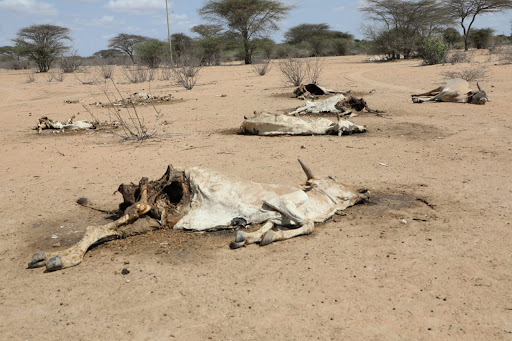

Livestock carcasses/FILE
The United Nations has renewed its call for urgent action to curb human-caused methane emissions, warning that the gas—responsible for nearly a third of global warming—is pushing the planet closer to irreversible tipping points.
In its latest report, ‘An Eye on Methane: From Measurement to Momentum’, the UN Environment Programme says slashing methane is the fastest and most cost-effective way to slow global warming in the near term.
The report, compiled through the International Methane Emissions Observatory, reveals that member oil and gas companies are now tracking one-third of emissions from global production using real-world data.
While that marks progress, the findings also expose a worrying gap between monitoring and action.
Nearly 90 per cent of alerts from Unep’s Methane Alert and Response System have gone unanswered, despite a tenfold increase in responses from the previous year.
“Methane reductions can quickly bend the curve on global warming, buying us precious time for deeper decarbonisation,” Unep executive director Inger Andersen said. “But data and reporting must translate into real cuts. Governments and operators must respond to satellite alerts and act decisively.”
Methane is a potent greenhouse gas,
86 times stronger than carbon dioxide over a 20-year period. Although it
lingers in the atmosphere for just 12 years, its impact on climate, health and
food security is devastating. Agriculture accounts for 40 per cent of
human-caused methane emissions, followed by fossil fuels at 35 per cent and
waste at 20 per cent.
Unep warns that meeting the Global Methane Pledge—a 30 per cent emissions reduction by 2030—requires a dramatic acceleration of efforts. Achieving it could lower global temperatures by 0.2 degrees Celsius by 2050 and prevent millions of premature deaths, crop losses, and labour disruptions linked to extreme heat.
Rapid methane cuts, the UN agency stresses, are not just a climate necessity, they are a lifeline for people and the planet.


















